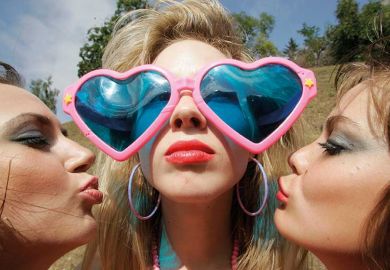As the Covid-19 pandemic shuttered businesses and crushed stock markets, the streets of every major metropolitan area stood barren. Fears of massive unemployment and economic uncertainty spooked consumers as the airline, tourism and hospitality industries imploded. In the West, the coronavirus loomed as an existential threat to our late-capitalist way of life.
But when I Zoomed my middle-aged friends in eastern Europe, they seemed nonplussed. The pandemic cataclysm proved all too familiar. One day you live in a country with one set of expectations and possibilities for the future; the next day you don’t. Worlds just fall apart sometimes. No one knows this better than those old enough to remember the sudden and unexpected collapse of the USSR.
Martina Cvajner’s excellent book, Soviet Signoras, investigates the human wreckage of geopolitical upheavals such as the end of 20th-century state socialism in 1991. She befriended a group of ex-Soviet illegal immigrants in northern Italy. Over years of fieldwork, she explores the subjective experience of migration through the eyes of these Russian, Ukrainian and Moldovan women who found themselves desperate and displaced after the economic chaos of the 1990s.
These formerly middle-class mothers had enjoyed what they considered “normal” lives. As administrators, teachers, pharmacists or doctors, they once owned their own small flats, spent weekends gardening at their dachas, took annual holidays at the seaside and enjoyed the relative stability and security of the clumsily planned Soviet economy even as they struggled with constant consumer shortages. Yet then their ordinary lives and marriages disintegrated before their eyes, forcing them to entrust their children to the grandparents and strike out for western Europe.
Soviet Signoras is the story of migrant “pioneers” – the first women to arrive in “Alpinetown” looking to earn money to repay their debts and send remittances to their families back home. Cvajner details the deep sense of humiliation these women feel as they are forced to care for Italy’s working-class elderly, men and women who often have less education and professional experience than their new caretakers. The former Soviet women call themselves lavaculi (literally “arse-washers”) and struggle against the cultural confusions and personal alienations that inevitably result from intensive in-home care work for the aged.
Through a series of beautifully crafted ethnographic chapters, Cvajner explains how these women forge a local ethnic community and transform themselves from middle-aged babushkas into sexy Slavic signore. As they adapt to their new Italian reality, the women slowly come to embrace new capitalist understandings of female human worth. If they once believed their value inhered in their identities as middle-class professionals and responsible mothers, Cvajner shows how the experience of migration from East to West, and from socialist to free-market economies, allows her subjects to discover the “benefits” of a commodifiable hyper-femininity. Soviet Signoras provides a poignant case study of how the collapse of state socialism precipitated a stark reduction in life opportunities for east European women. It also celebrates the tenacity and creativity of the human spirit in its ability to survive social catastrophe, a message we would all do well to remember.
Kristen R. Ghodsee is professor of Russian and east European studies at the University of Pennsylvania and the author of Why Women Have Better Sex Under Socialism: And Other Arguments for Economic Independence (2018).
Soviet Signoras: Personal and Collective Transformations in East European Migration
By Martina Cvajner
University of Chicago Press, 280pp, £68.00 and £24.00
ISBN 9780226662251 and 9780226662398
Published 22 October 2019
POSTSCRIPT:
Print headline: Bye babushka. Ciao bella
Register to continue
Why register?
- Registration is free and only takes a moment
- Once registered, you can read 3 articles a month
- Sign up for our newsletter
Subscribe
Or subscribe for unlimited access to:
- Unlimited access to news, views, insights & reviews
- Digital editions
- Digital access to THE’s university and college rankings analysis
Already registered or a current subscriber?








